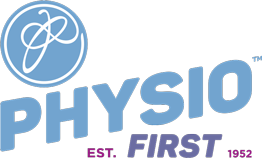Golf injuries
Many injuries can occur as a result of playing golf as it involves a lot of movement through many different parts of the body at a high speed during the golf swing. You only need to look at Tiger Woods' history of injuries to see how many areas could potentially be injured whilst playing. The list below may not be as long as Tiger's, but these are some of the most common:
Play better golf - Top Tips
- If it�s the first round in several months, your body it not in top condition to pay. As with any sport it is important to slowly increase the amount you play. It�s a good idea to play half a round for several weeks before completing the full 18 holes.
- Warm up. Being such a repetitive sport, golfers are prone to numerous overuse injuries. Going for a brisk walk before performing dynamic stretches allows the soft tissue to prepare for 18 strenuous holes. Dynamic exercises should mimic the movement you will perform allowing the tissues to retain its power and increase its flexibility.
- Take you bag on wheels and pull it. It is ok to be a little lazy. Carrying your bag for 18 holes places a lot of stress on your back which can predispose you to many other injuries.
- Practice your non-dominant swing every third hole. This may sound odd, but unless you are Tiger Woods, you will be performing over 80+ swings in one direction. This places a lot of unidirectional stress on the body. To keep yourself balanced, take several practice swing in the opposite direction before switching back and going for the whole in one.
- When in doubt, get it checked out. It�s always best to ask a professional if unsure about anything. Golf is about precision and therefore not only does your swing, but also your equipment needs to be the right length for you. Lessons are never a bad idea. There will always be something that needs to be corrected.
And of course, if you have any aches or pains that last more than a week, best to give your favourite physio at Ealing Physiotherapy a call and we�ll get you back on the green as soon as possible
Golfer's Elbow
Golfer's elbow is characterised by pain at the bony point on the inside of the elbow and may radiate to the forearm. It is common in golfers and racket sports players, and it can also occur in people who perform repeated forearm bends, wrist bends, gripping and screwing actions.
Tennis Elbow
Tennis elbow is the more well-known elbow condition, and surprisingly golfers can be 6 times more likely to suffer from this than golfer's elbow. Pain is generally fairly local over the outside of the elbow, and will often be aggravated by gripping and actively extending the wrist. It is a frequent problem in golf as a result of the gripping and twisting movements involved through the forearm and wrist.
Back
Lower and upper back problems can be experienced as a result of golf. There can be variety of causes from faulty movement patterns during the swing to overuse injuries, and these can affect multiple structures in the back including muscles, zygapophyseal joints and discs. Diagnosis of the underlying cause is key to a full recovery and identifying ways to prevent recurrence.
Knees
Significant twisting forces can be placed on the knees when playing golf which can lead to a variety of structures being injured from cartilage to ligaments. Biomechanical issues in the legs can also gradually lead to problems over time due to the amount of walking involved when playing. The knee joints themselves take a lot of weight through a relatively small surface area and damage can build up gradually over time as a result of this, so it is vitally important to get any pains assessed as soon as possible.
As with any injuries, the sooner you get it properly assessed and treated, the quicker and better your recovery.
Abul Chowdhury Read more Testimonials“ " I had a painful lower back which was stopping me play golf (14 handicap). After six sessions with Simon and armed with a series of daily exercises I broke par at my home course for the first time. A month later I completed 9 rounds in 8 days in South-West Ireland walking their toughest links courses. I could not have done either of these without your help. Many thanks!”
For more information on the conditions we treat and services we offer, or to book an appointment please call
020 8847 1887 or email us at reception@ealingphysio.co.uk







